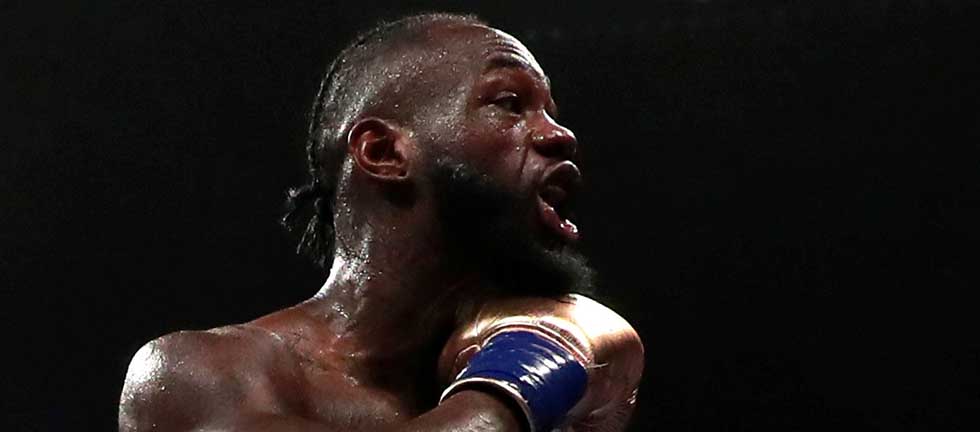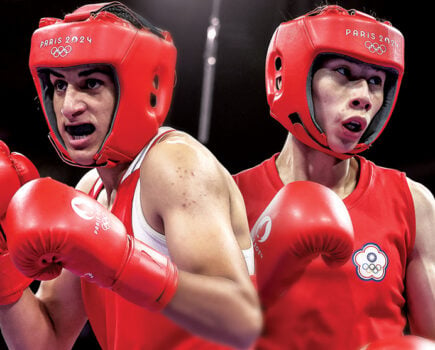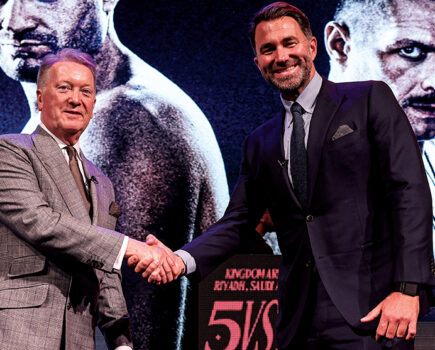HAD Deontay Wilder got his wish and killed Dominic Breazeale, the sport would have had a hard time recovering. But because he only knocked a man out, adding another spectacular one-round finish to his record rather than the “body” he claimed he wanted, all is seemingly forgiven.
Wilder had the chance to take back his comments in the aftermath but he chose not to. Instead he spoke of being “real” and insisted his desire to end Breazeale’s life was not merely trash talk of the worst possible kind but an indication of how he felt in the days before battle.
Boxing does not need comments like Wilder’s. One would think he’d be a little more careful with the sport’s reputation, particularly when one considers the riches it has made him.
But for you and I to judge is easy. To fully understand what Wilder was really feeling about Breazeale in those moments is simply impossible. This was a man Wilder had trained for months to destroy, a man he claims had disrespected his family. The desire to kill Breazeale in those dark days before war was likely real, at least in that brief period of time, even if vocalising his want was a stupid thing to do.
The whole process does make you think, though. Was a threat to kill really any worse than what followed? The sport that sensationalises violence presented Wilder, two days after he publicly expressed his intention to kill, with the opportunity to do some serious damage. The savage one-punch knockout that followed was then universally celebrated. With all that in mind, who is really in the wrong here?

Did Wilder not give us what we all wanted? Fighters, often at boiling point, are prodded and poked and pushed towards saying something outrageous by reporters in the final days before a fight purely for the sake of exposure. And then we all act aghast when the most chilling threat a fighter can make is uttered and the whole world gets to see how disgusting our sport can be.
Our desire to champion such violence, to dress it up in leather gloves and sequined shorts and put it on a stage so no one can miss it, only to then pour scorn on a fighter for behaving too violently atop the pedestal we created for him, is a curious contradiction, is it not?
Supreme US boxing scribe William Detloff was one of the few who did not criticise the WBC heavyweight champion’s pre-fight remarks.
Instead he pointed to boxers from yesteryear making similar threats that came without the subsequent outrage. Mike Tyson spoke of his desire to kill Razor Ruddock before he beat him up a couple of times in the early 90s and, fresh from a breakout win over fringe contender Jesse Ferguson in 1986, Tyson nurtured his murderous reputation when he told a reporter he had been trying to drive the nose of his opponent into his brain. ‘Wow,’ everyone said at the time, ‘that is one crazy dude!’
Even a 45-year-old George Foreman, approaching his cuddly phase but still not averse to breaking faces, made some tasteless death remarks in the build-up to his historic win over Michael Moorer.
Thankfully for them, their opponents survived just like Breazeale survived.
But not everyone does.
Benny Kid Paret didn’t get out alive in 1962 after teasing Emile Griffith to the point Griffith made a death threat which was then fulfilled in a cruel twist of fate. It was arguably the darkest of all days for boxing. One that Griffith rolled over and over and over in his mind until his mind stopped working properly.
The story of Emile Griffith, the carelessness and the everlasting turmoil, should provide lessons for us all.






